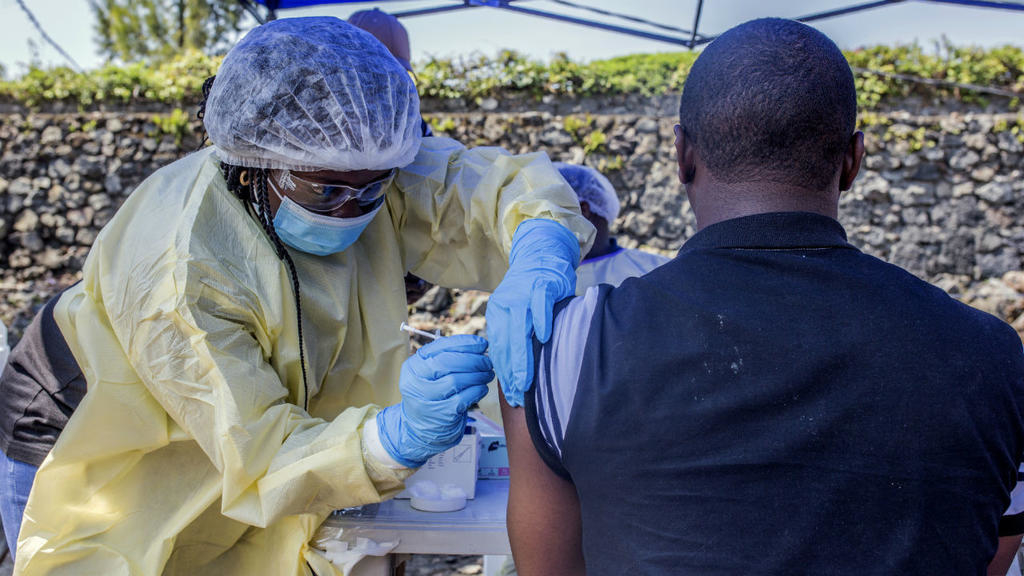Health
No link between 2 ongoing Ebola outbreaks in DRC — WHO

The World Health Organisation (WHO) says new genetic sequence analysis by the Democratic Republic of the Congo (DRC) has found that the newly-identified Ebola virus in the Equateur Province is different from the previous one.
The WHO Regional Office for Africa in Brazzaville, Congo, said this in a statement posted on its website.
According to the UN agency, the newly-identified Ebola virus in Equateur province in Western DRC, is different from the one which infected more than 3,400 people in the eastern part of the country.
It said that the new genetic sequence analysis was done by National Institute of Biomedical Research (INRB) of DRC.
“The DRC’s 11th Ebola outbreak was announced on June 1, 2020, after a cluster of cases was detected in the Mbandaka area of Equateur Province.
“The INRB genetic sequencing analysis, also found that the virus in the latest outbreak, is distinct from the previous one that hit the same region in 2018.
“The investigation is ongoing to determine the source of the new outbreak, but it is likely that it originated from an animal source.’’
The statement quoted Dr Matshidiso Moeti, WHO Regional Director for Africa, as saying: “We are not surprised to find no link between the current outbreak in Mbandaka and the two previous ones.
“The ongoing Ebola outbreaks are far apart and there is a flight ban in place due to COVID-19.
“National health authorities supported by WHO and partners have led an effective response against Ebola in eastern DRC despite huge challenges.
“We expect the same national expertise will be leveraged to overcome the current outbreak in Mbandaka.”
According to the statement, WHO has more than 20 staff on the ground supporting the Ministry of Health and partners in responding to the outbreak in Mbandaka and the rural community of Bikoro.
It stated that additional staff would arrive this week to support the Ministry of Health in containing the outbreak. WHO has worked with the DRC Ministry of Health.
“It has also worked with Africa Centre for Disease Control and Prevention, the Red Cross Movement, UNICEF and other partners over the past two years to strengthen capacity to respond to Ebola outbreaks in the DRC.’’
The statement further quoted Moeti, as saying: “Ebola is endemic in animal reservoirs in to the DRC, so it was expected that new cases would emerge.
“While the new Ebola outbreak in Mbandaka represents a challenge, it’s one we are ready to tackle. With each experience we respond faster and more effectively.”
In addition, the statement stated that WHO had deployed vaccinators to the affected areas together with the ministry and partners.
“No fewer than 600 people have been vaccinated in Mbandaka and Wangata health zones; So far, 2,200 vaccine doses have been delivered and more are expected at the end of the week.
“WHO is committed to applying the lessons learnt in previous Ebola outbreaks, including even greater engagement with communities and having local health authorities lead the response at the local level.
“WHO has reached out to key community groups, such as community leaders, religious leaders and youth groups in the affected areas,’’ it said.




 Davido's Net Worth & Lifestyle
Davido's Net Worth & Lifestyle 
